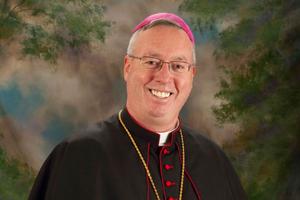Pew Study: Christianity Still Most Common Religion Among Asian Americans
The number who say they are Christian is down from 42% in 2012 when Pew last conducted a large-scale survey of Asian American religious affiliation.

A study conducted by Pew Research Center found that Christianity is still the dominant religion among Asian Americans even as its popularity has recently declined among those demographics.
Pew said in a release this week that “about a third of Asian American adults (34%) say their present religion is Christianity.” Pew surveyed Americans of Chinese, Filipino, Japanese, Indian, Korean, and Vietnamese backgrounds.
The conclusions were drawn from “20 focus groups and five one-on-one interviews with more than 100 Asian American adult participants” from April to July of this year.
The number who say they are Christian is down from 42% in 2012 when Pew last conducted a large-scale survey of Asian American religious affiliation.
Overall, slightly more than half of Asian Americans “express a connection to Christianity” in the latest survey, either through direct affiliation or through family or culture.
Among the surveyed sub-demographics, Filipino Americans report the largest number of Christians, at 74%. Korean Americans report the next-largest share, at 59%; the Japanese and Chinese report the lowest shares, at 25% and 23%, respectively.
Among Filipinos, 57% identify themselves as Catholics. Just 5% of Chinese and 3% of Japanese identify as Catholics.
The numbers come as a growing share of Asian Americans identify themselves as “religiously unaffiliated,” mirroring steady increases in that category in the general American population in recent years.
In 2012 just 26% of Asian Americans identified as unaffiliated; the latest survey numbers say 32% claim that label.
Pew found that religiously unaffiliated Asian Americans tended to skew younger, to have been born in the U.S., and to vote Democratic compared with the broader Asian American population.
Foreign-born Asian Americans were considerably more likely than those born in the U.S. to attend religious services at least monthly, 32% to 21%.
Less than a third of Asian Americans, meanwhile, say religion is “very important” in their lives. Just a fifth say they go to a religious service at least weekly, slightly less than the one-quarter of overall U.S. adults who claim to do so.
Outside of the U.S., within homeland Asian countries, Christianity remains a relatively small share of the overall religious population. Pew data show Hinduism, Buddhism, and Islam outpacing Christianity by considerable margins in the Asia-Pacific region.
The research center has noted that the region has seen rapid growth in Catholicism in recent years, with 131 million Catholics currently present there, “up from 14 million a century ago.”
- Keywords:
- pew research study
- asian americans















